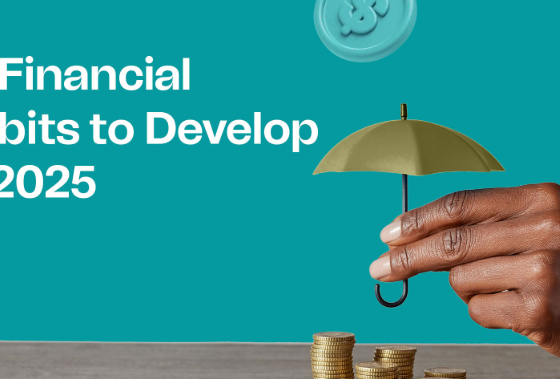Introduction
Managing personal finances in 2025 requires a strategic approach due to inflation, evolving investment options, and technological advancements. Whether you are a professional, entrepreneur, or student, applying smart finance techniques can help maximize savings, minimize debt, and grow wealth.
This guide highlights the best personal finance tips, tools, and strategies for 2025 to improve financial health and achieve long-term goals.
Why Personal Finance Is Important
- Financial Security: Reduce debt and build emergency funds.
- Wealth Growth: Optimize investments for long-term returns.
- Better Lifestyle: Budgeting allows smart spending without compromising needs.
- Tax Efficiency: Reduce liabilities using tax-saving strategies.
- Financial Independence: Plan for retirement, education, and other major life goals.
Top Personal Finance Tips in 2025
1. Budget Wisely
- Strategy: Track income, expenses, and savings using apps or spreadsheets.
- Tools: Mint, YNAB (You Need A Budget), Personal Capital
- Tip: Follow the 50/30/20 rule: 50% needs, 30% wants, 20% savings/investments
2. Build an Emergency Fund
- Strategy: Save 3–6 months of living expenses for unexpected situations.
- Tip: Keep it in a high-yield savings account for liquidity and interest growth.
3. Manage Debt Effectively
- Strategy: Prioritize high-interest debts like credit cards.
- Methods: Debt snowball (smallest first) or debt avalanche (highest interest first)
- Tip: Avoid unnecessary debt and negotiate rates if possible.
4. Invest Smartly
- Strategy: Diversify across stocks, bonds, ETFs, mutual funds, and real estate.
- Tip: Automate investments and focus on long-term growth rather than short-term speculation.
- High-CPC Keywords: Stock market investing, mutual funds, passive income, high-yield ETFs
5. Save for Retirement
- Strategy: Use 401(k), IRA, or Roth IRA accounts to secure your future.
- Tip: Start early to benefit from compounding interest.
6. Use Technology for Finance
- Strategy: Track spending, automate payments, and monitor investments with apps.
- Tools: Robinhood, Acorns, Betterment, Wealthfront
- Tip: Stay updated on fintech trends to optimize wealth management.
7. Tax Planning & Optimization
- Strategy: Take advantage of deductions, credits, and retirement contributions.
- Tip: Consult with a tax professional to reduce liabilities and increase savings.
Comparison Table
| Tip | Tools / Accounts | Best For | Benefit |
|---|---|---|---|
| Budgeting | Mint, YNAB | Beginners & professionals | Smart money allocation |
| Emergency Fund | High-yield savings account | All | Financial security |
| Debt Management | Debt snowball/avalanche | Credit card users | Minimize interest |
| Investing | Robinhood, ETFs, mutual funds | Long-term wealth growth | Maximize ROI |
| Retirement Savings | 401(k), IRA, Roth IRA | Professionals | Future security |
| Tech Tools | Betterment, Wealthfront | Busy professionals | Automation & tracking |
| Tax Optimization | Tax advisors, TurboTax | All taxpayers | Reduce tax liability |
Tips to Maximize Personal Finance
- Review finances monthly and adjust budgets.
- Automate savings and investments to avoid missed opportunities.
- Avoid lifestyle inflation as income increases.
- Rebalance investment portfolios regularly.
- Keep learning about personal finance strategies and tools.
FAQs – Personal Finance 2025
Q1: What is the best budgeting strategy in 2025?
The 50/30/20 rule is popular, combined with apps like YNAB and Mint for tracking.
Q2: How much should I save in an emergency fund?
3–6 months of essential living expenses is recommended.
Q3: Are ETFs better than stocks for beginners?
ETFs provide diversification and lower risk, making them ideal for beginners.
Q4: How can I reduce credit card debt efficiently?
Use debt avalanche (highest interest first) or debt snowball (smallest balance first) methods.
Q5: Which retirement accounts are best for long-term growth?
401(k), IRA, and Roth IRA are effective due to tax advantages and compound interest.
Q6: Should I invest in real estate or stock market first?
Depends on risk tolerance; a balanced approach often yields steady growth.
Q7: Can personal finance apps really help me save more?
Yes, they automate tracking, budgeting, and investing to optimize finances.
Q8: How often should I review my finances?
Monthly reviews are recommended to adjust budgets and track progress.
Q9: Are tax-saving investments worth it?
Yes, they reduce liabilities and improve overall ROI on income.
Q10: Can technology replace financial advisors?
Fintech apps help, but complex financial planning often benefits from professional advice.
Conclusion
Personal finance in 2025 requires smart budgeting, debt management, investments, and retirement planning. Using apps, automation, and tax strategies can help maximize savings and ROI.
Key takeaway: Start early, stay disciplined, diversify investments, and leverage technology to achieve financial independence.
